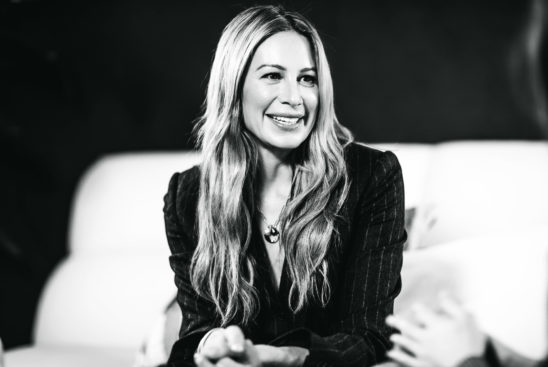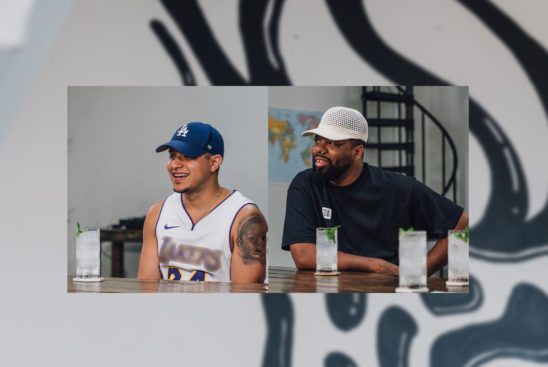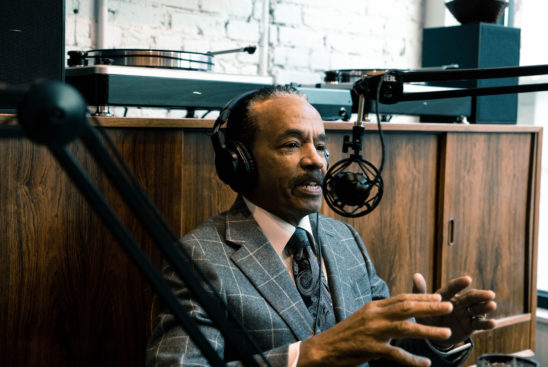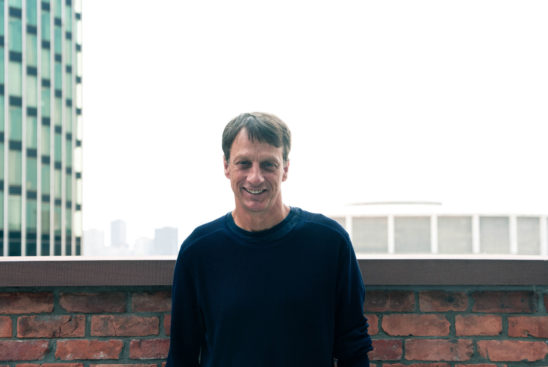What are we drinking?
One of the great finds that Micah [Melton the beverage director] had this year was this bottle. This is from 1965. It’s a very old Fitzgerald, in the gallon, and it was done at Stitzel-Weller Distillery. That’s the predecessor that Pappy Van Winkle used to own. Do you know the whole craziness over Pappy Van Winkle and all of that? The whiskey that everyone all over the world goes bonkers for these days is this stuff here. Pappy Van Winkle is hard to get your hands on. The allocation for bars is only a bottle or two. We’re really fortunate. We have the entire line, but we’ve started to put together a cabinet like that there [points across room]. That’s our antiquities cabinet. It’s full of dinosaurs, extinctions and that sort of thing. Those are all whiskeys– Chartreuse and cognac going back to 1895 that are no longer in production anywhere. They’re literally like one-off bottles. The cool thing here [at The Office] is that we try to price them in such a way that anyone can buy them. I’m going to find a jigger here so I don’t spill this all over the place.
Now this is a drink.
If you’re gonna do “A Drink With”… We’re gonna drink.
So is bourbon always your drink of choice?
No, I’m a tequila guy. I’ll drink margaritas in the winter. I love a proper daiquiri, that sort of stuff– really simple.
The Office is a speakeasy in the basement of The Aviary and Next. What’s something people don’t know about this place?
I think the biggest misconception is that you can’t get in. If people come to the Aviary and they’re digging what we do and enjoying it we’ll say, “We’ve got something the complete opposite just below you.” We enjoy surprising people and creating great experiences for them. That’s our whole goal in what we do. So this was Grant [Achatz’s] idea. We knew that everyone in the cocktail industry was going to say, “Why are chefs interloping on our thing?” and wonder if we could make a proper drink. This space was actually a crappy little office. It looked nothing like this.
The setting is very intimate with only 14 seats. You do feel special down here.
Yeah. If I go to Alinea to eat—which I’ve only done once in the last two years, I don’t do it very often—I feel like I’m still working because I’m looking at other tables, I’m making sure everything’s good. I’m not relaxed and enjoying myself– the same thing at Next. You don’t want to look like that guy, and that guy is the guy who owns a bar or restaurant and sits there, eats there every day and treats it like his living room. It’s not meant to be that. But The Office kind of is. It’s such a small room and there’s one bartender and one chef. I can come down here, bring some friends down and say hi to everyone in the room and then just sit down and enjoy myself and forget what time it is.
What has been the craziest night here?
[Laughs] I can’t tell you that. No, no, no. I’ll tell you afterwards … What I like to watch is when we’ve got people who don’t know each other in such a small intimate environment. You’ll have like six people over there and four people over there and pretty soon all of their chairs are turned around. You’ve got people from Europe chatting with people from Cleveland.
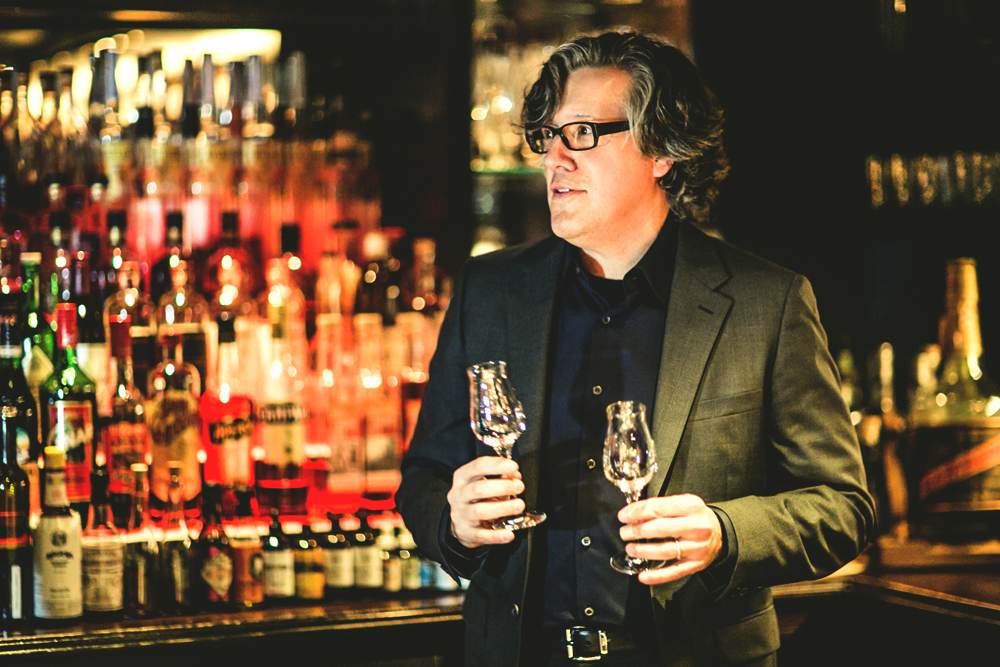

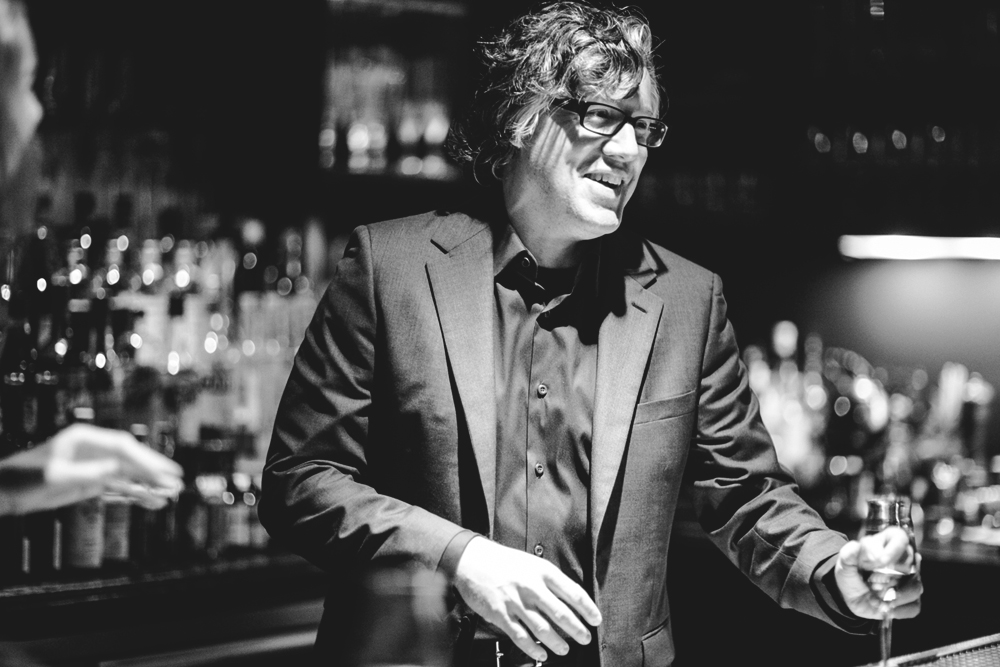
When you think back to 2004 when you were opening your first restaurant, Alinea, with your partner, chef Grant Achatz, what emotions come up?
I think it was terrifying to build Alinea, for me. From the time Grant was 12, this is what he wanted to do. I was trying to help someone achieve a childhood dream and my general feeling was, “Whatever you do, don’t screw this up”, which is always a bad place to be coming from. You’d rather attack something than be defensive about it. He was attacking it, so it was fine. You have to go out and raise a couple million dollars. You have to build a restaurant when you’ve never built a restaurant before. Everyone you know is telling you this is the dumbest career change of all time.
After being named Best Restaurant in the World by Elite Traveler magazine and awarded the highest rating of 3-stars by Michelin Guide and a James Beard Award for best service, was there less anxiety the second time around with your second restaurant, Next, in 2011?
There’s a certain inevitability now. Once you do something and achieve a level of success then people say, “Sure, the next thing they did was good because they were already standing on this platform.” I don’t feel that way about Next because it was so far afield of what people normally did. I don’t feel that way about Aviary because there are still very few bars in the world that operate under the philosophy of what we do. Next had like a 50 percent chance of working in my own mind. Alinea felt dicey. There was still uncertainty.
In the documentary “Spinning Plates” you were walking around Next when it was under construction and said, “It’s actually making me nervous that I’m not nervous.” Are you nervous about your new reservation ticketing technology endeavor Tock?
Yeah, I mean… I wrote about this in “Life, on the Line”. If you wake up every day and you feel great, you’re not taking enough risk. If you wake up every day and throw up, you’re taking too much risk. You need a nice even-level nausea. That’s the whole reason you do it, to feel a little tingle, uncomfortableness. It’s like anything in life. If you do something you’re not familiar with, you don’t really know what you’re doing, that’s exciting. I couldn’t imagine showing up every day and going, “Yeah, I know exactly what I’m going to do today.”
After finding some issues with the traditional method of taking reservations over the phone, it was laughed off when you first said you wanted to sell tickets to dine at your restaurant. Do you wish you developed the software sooner and ignored the skeptics?
Sometimes I just delay things because I feel like people aren’t ready for it. And myself maybe too; maybe I’m not ready to do it. But, you know, I kind of knew it was bubbling to a head and then I wrote that blog post about it.
You revealed a lot of information in that post. Are you glad you wrote it?
Oh God, yeah. I mean it’s been read over two million times now, which is crazy. I knew that people in the industry would get excited about it. I didn’t expect that people in other businesses would get so excited about it. I knew the web would geek out on the data and all that, but I didn’t think that I’d have like gastroenterology practices e-mailing me saying, “We have the exact same problem. We have 8 percent no-show rates and we have to overbook it and provide worse service to our clients.” It’s all the same problem.
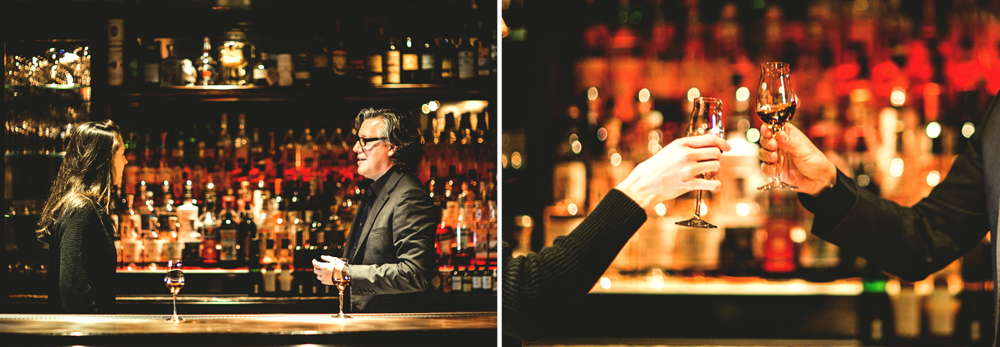
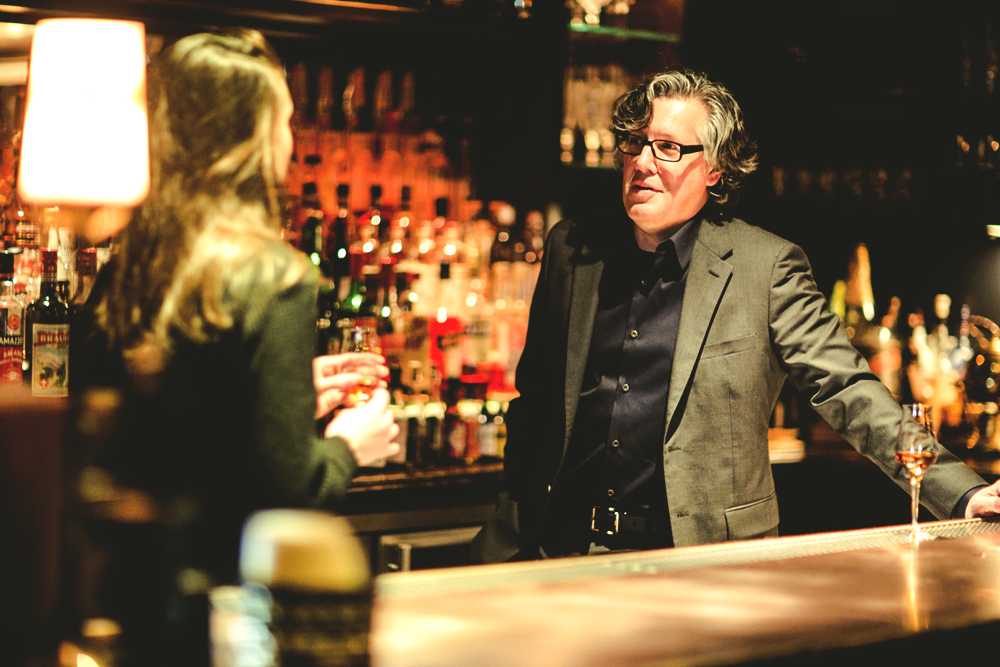

With so many people saying the restaurant industry is challenging, did you ever doubt yourself?
Well, I was partnered with one of the best chefs in the world … I guess a lot of people may not have known that at the time. I felt very confident that that was the case. I guess I always want to back myself, so I’m willing to just fail as long as I’m failing because it was my own failure. You know what I mean? So, yeah. I was highly motivated to not screw it up, but people saying that just motivated me more. I heard the same thing when I was on the floor of the Mercantile Exchange [in my former career]. I had a lot of people saying, “You can’t do this. You won’t do this. It won’t work. It won’t be allowed.” That just motivates me to do it.
When was that moment when you decided you wanted to get out of finance?
It was a long grind; 2001 was a tough year. My dad died at the beginning of the year and then September 11th happened. We had a lot of employees at the Mercantile Exchange. It was just ten years of doing a very 24-hour-a-day job. I needed to take some time off. I didn’t think I was going to quit permanently; I thought I was going to leave and then do it smaller again. It was a grind. It just grinded me down.
Did your friends and family predict the career change?
All of this makes sense to the people that know me really well, but I still don’t think of myself as a restaurateur. It’s just weird. I still think of myself as just a geek that likes to figure out problems. Tock makes sense to me because it’s all of the things that I like … Two years ago there’s no way I could’ve taken so much time on other things. We’re focusing more on building a company not just building a restaurant, which are two different things.
Biggest difference?
Managing people and not managing events. We now hire really, really great people and empower them to do things.
In another article you talked about how it’s obviously hard to let people go, but sometimes you need to do it sooner than you’d like.
Yeah, you know, we’ve had a few really key people that we’ve let go and there’s always a fine line between loyalty and holding each other back. Sometimes we’re trying to change the way we do business and they’re not wanting to change. It’s always a tough thing. I have a high degree of loyalty to people so I have a hard time getting rid of anybody, but at the same time once it crosses your mind, you’re kind of done. You can walk around with it for eight months, but then you just feel tense, right?
How do you take time for yourself to recharge?
The only time I’m ever not thinking about work is when I golf.
Favorite course you’ve played?
Cypress Point by a mile, out in California. It’s called the Sistine Chapel of golf.
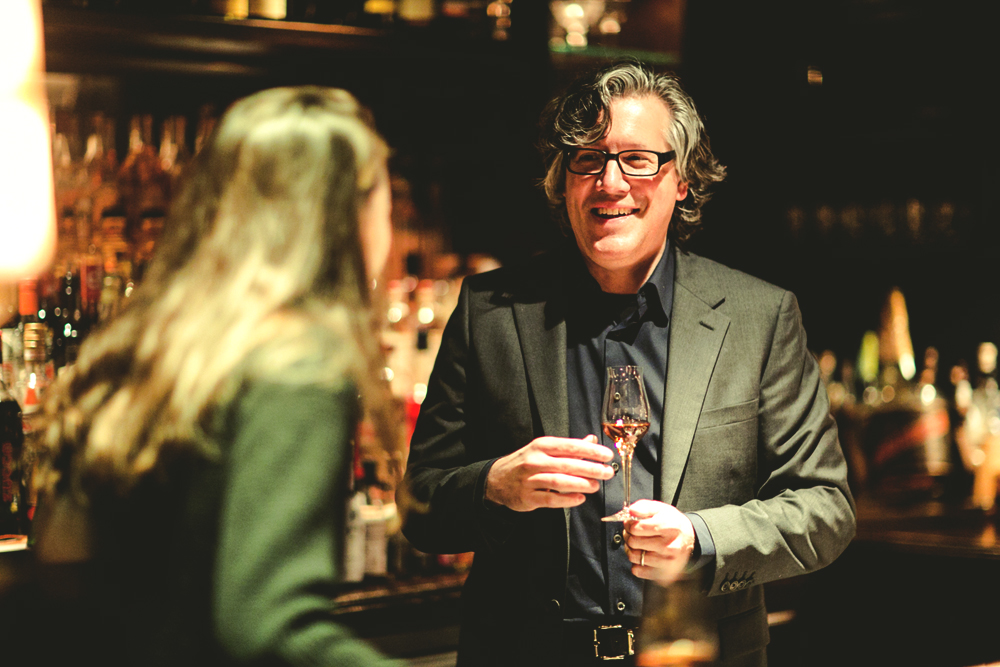
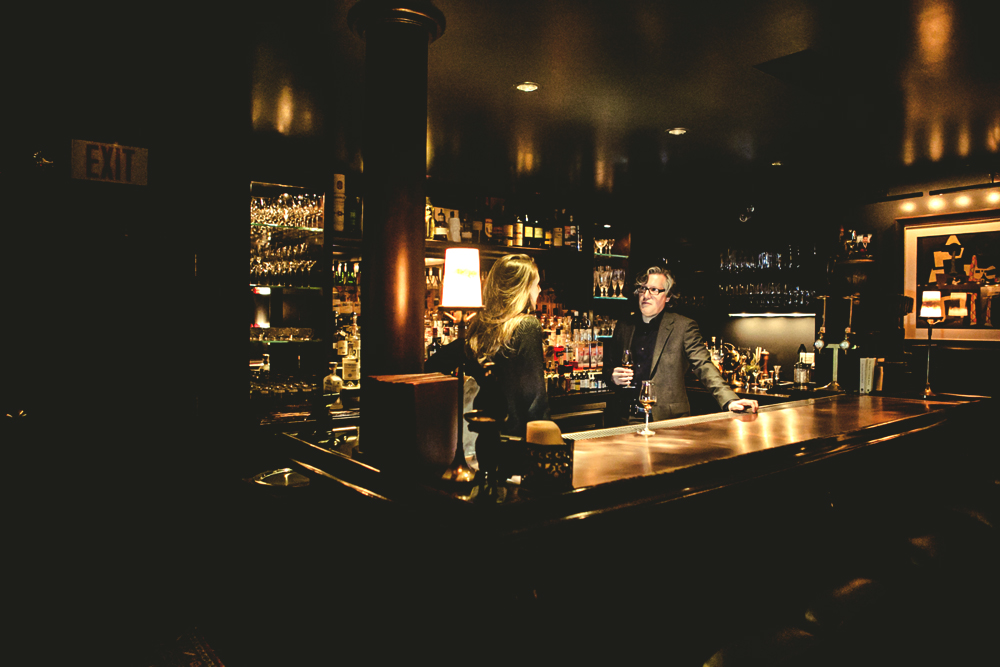

What has been the most memorable conversation or moment that took place over a drink in your life?
When Grant and I got margaritas when he was diagnosed with cancer … He was diagnosed with cancer and about three days later we didn’t know the extent of it. At the time we thought it was the equivalent of skin cancer or something like that. You know, you go, you get it cut out, they watch you and that’s it. He asked me to go with him to the oncology EMT. We had that meeting and instead of being told, “What you have is minor and an inconvenience outpatient thing, you’ll be fine,” they basically said, “We have to cut out your tongue, we have to replace it with part of your leg, we have to cut out your jaw, you’ll never eat again, you’ll never taste again, you’ll never talk again. And you should actually get a will together, because even after all of that, you have a 20 percent chance of living four years.” At that point I said, “Let’s leave,” because you’re not going to accomplish any of that at this point. At the time we had just been named best restaurant in America. All of his dreams were kind of coming true in a lot of ways. Right across the street was a dive Mexican bar that opened at noon. It was a Thursday at noon and he said, “What do we do?” And I’m like, “We need to go have a drink.” It was just a really, really horrifically emotional thing. We got in there and we ordered a pitcher of margaritas. We were the only two people in the whole place and we poured the drink and we just said, “Well, that was fun while it lasted!” It was one of those life moments where things are really fragile. We didn’t have this morbid conversation. We just said, “Hey, we did a really good job with this while it lasted.” It was the moment where you think, “Holy shit, I can’t believe that just happened,” and then you decide the next six months are going to be really hard and we just had a pitcher of margaritas. We don’t ever go out. We’re like brothers, but if he has an odd Tuesday night free, he doesn’t call me up. We see each other every day. We work together, you know. That was probably one of the few times where just the two of us ever have had a drink with nobody else there. It was really weird and very difficult, but very profound.
I’m sure that’s a drink you’ll never forget. So happy to know that he has since recovered. His story is incredible. Who do you lean on outside of people at work?
Well, my wife obviously. We’ve been together forever.
Did you know she was the one back in college when you met?
Oh God no! Of course not, why would you? You’re stupid and young and all of that, but we had critical growing moments together over many years. I was 20. My dad got married at 41. I never thought I would marry anyone that I met that young, but it was a good fit. Do I lean on anybody to make a decision? I kind of don’t. I’m an only child, so ultimately I’m very much a “You’ve got to figure shit out for yourself,” [kind of guy].
What’s the best concert you’ve ever been to?
The Wilco show this year when they played 130 different songs in five nights at the Riviera. They went back through their entire catalogue and it felt like they didn’t quite know what they were doing– which is good! I think one of the key things for any art to work—including what we do here— is that there has to be a real possibility of failure … So many things are overproduced. You go to a restaurant or see a play and it’s so put together that it doesn’t feel like it could go off the rails.
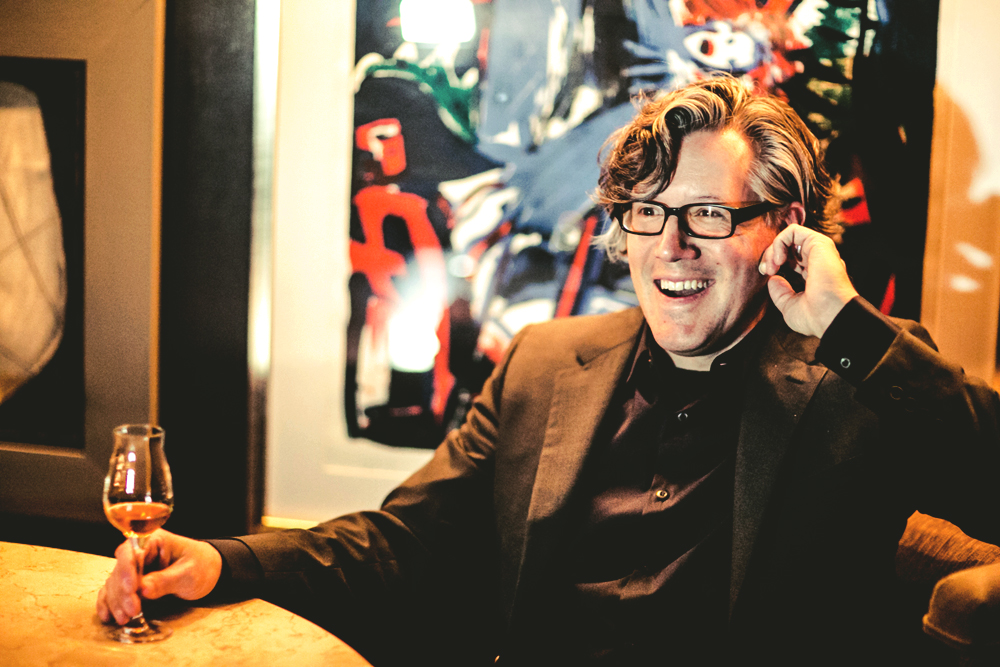

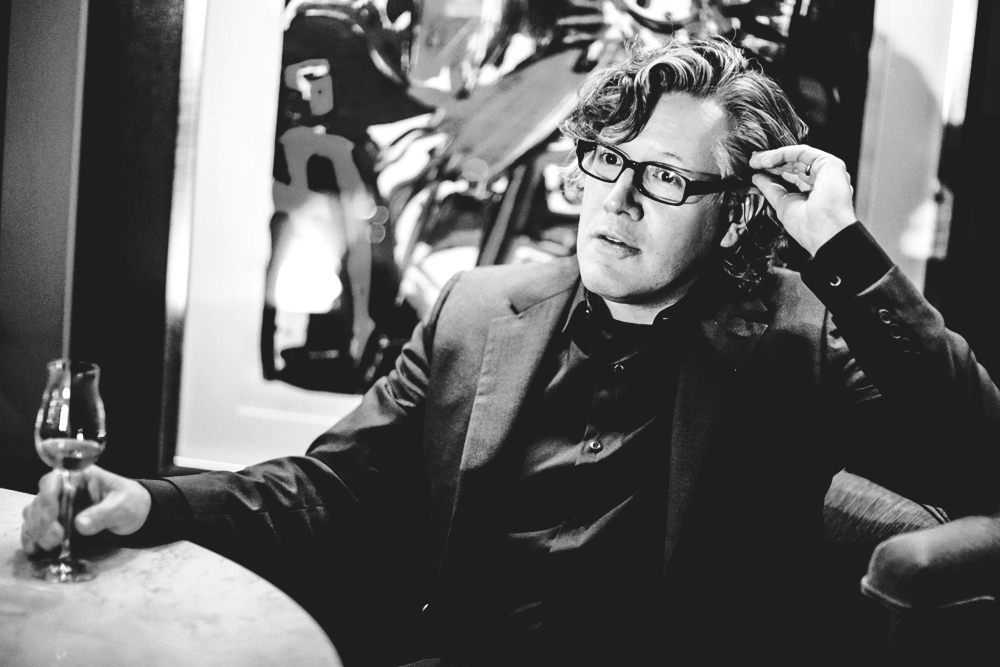
What do you consider your biggest failure that brought you to success?
I don’t know that I have a massive business failure. I have lots of little personal failures that we all probably do. My biggest thing is I definitely let my emotions get the better of me at times. I get angry and I’ll make reactional decisions and that’s something that’s a personal failing, but it’s not a failure. I hate to use a golf analogy, but Jack Nicklaus was asked, “What’s the worst shot you ever took?” He said, ” I don’t know. I try to forget all of those.” Whenever I started something that didn’t work, and I’ve got tons of them, I don’t dwell on it. I think the things that bother me are the interpersonal things– if something has gone badly or someone feels slighted or hurt in business or personal relationships.
What advice would you give 20-year-old Nick?
I was listening to what other people’s expectations were of me, instead of just doing my own thing. I probably wasted five years in some respects because I didn’t have the confidence to do what I wanted to do. I kind of did small pokes into it. I got into University of Pennsylvania Law School and then deferred a year to just blow it off. I kind of just floundered for a while and wasted four years just trying to figure out how to say no to people. But yet it worked out so I can’t really complain … Doing what you love is really hard, it’s not easy. You’ve got one go around here. You might as well do what you love, but it takes a lot of courage. It takes a lot of failure and there are a lot of people who don’t like it when you go to do what you like.
I wonder why that is.
It points out their own failure to act on their own wishes and dreams, I think. Of course it’s a luxury to do it, but at the same time I know people that certainly came up from nothing. Grant did not grow up with money. He worked in a diner since the time he was 3 years old in St. Clair, Michigan. When he walked into Charlie Trotter’s the first time he had never been to a restaurant like that, ever. Then you’re looking 15 years later, he owns Alinea. Those things happen because somebody decided when they woke up one day that they’re going to take a risk and they’re going to go do that. Now you have to be a little bit psychopathic to actually do that, but you can’t take that away from him.
What restaurants around the world are on your list to visit?
I want to go to Aronia de Takazawa in Tokyo … I think the Boka guys hit a home run with Momotaro. There are still a lot of really good things in Chicago that we have.
If you could have a drink with anyone, who would it be?
That’s easy. That’d be my dad. He loved food. My mom did not love food, so I grew up in a household that never got to eat well. He never saw any of this so this would be comical. In the 50s he had a Greek diner that he owned. I never knew him when he was in the restaurant business, but he had a diner that was two blocks away from here on Madison Street. He’d be mind-blown by this area [around Fulton Market] too!

KIRSTEN MICCOLI PHOTOGRAPHY / A DRINK WITH
Did you enjoy this feature? Subscribe to our newsletter and never miss a drink, we promise we’ll never spam you!

